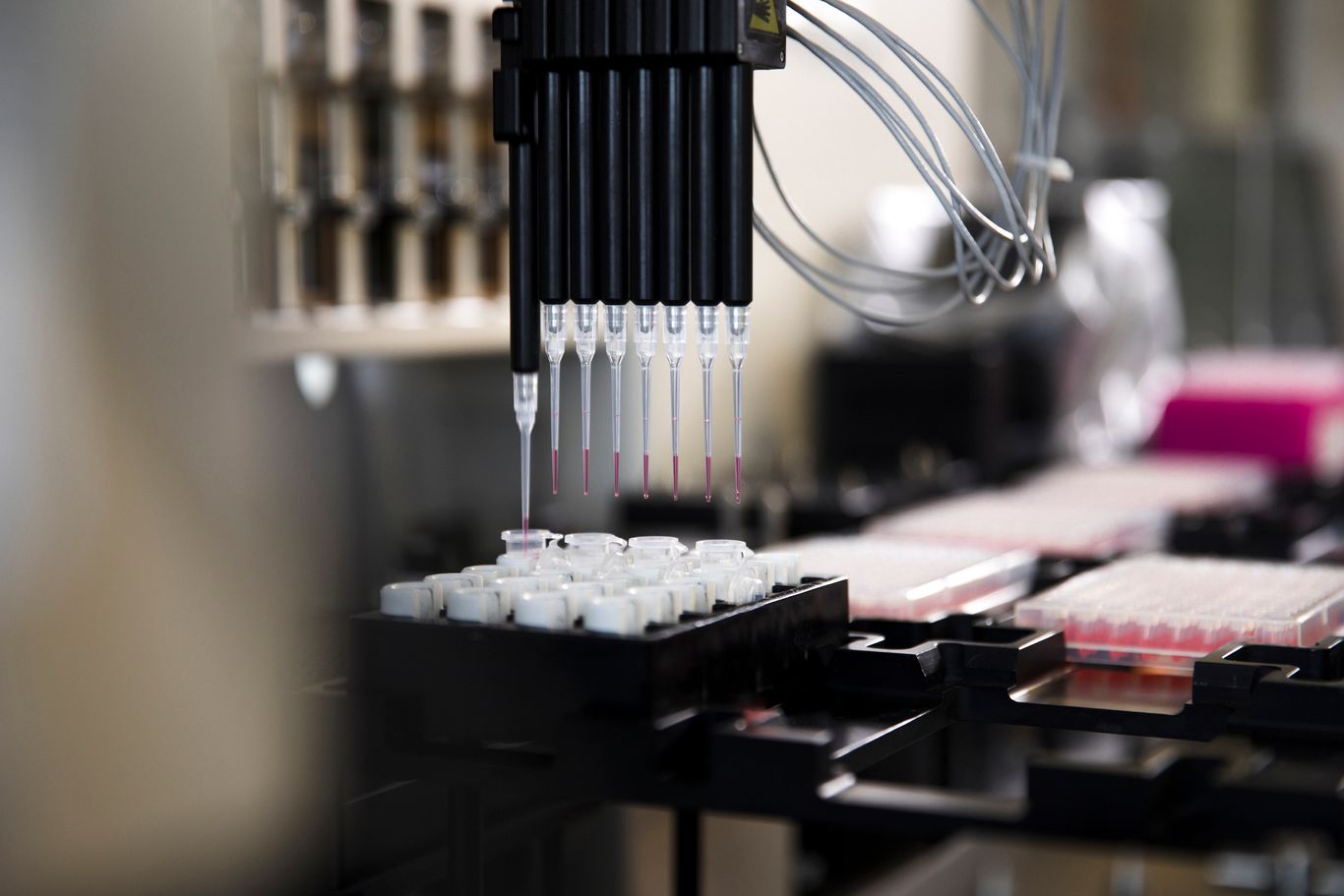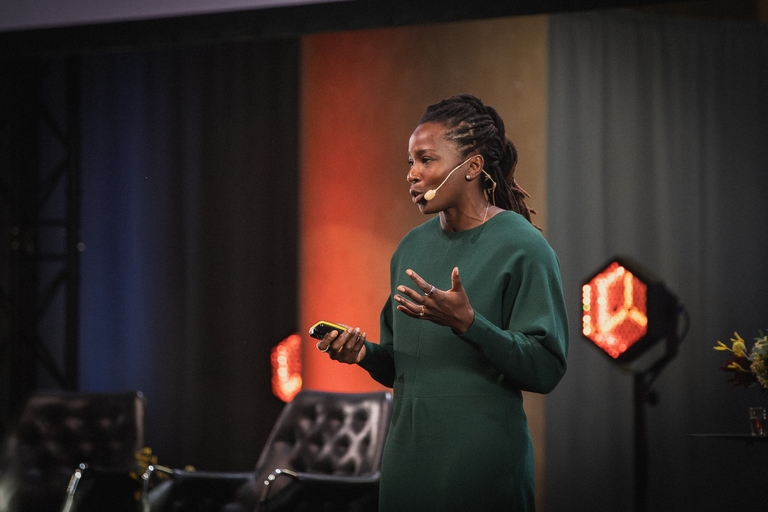
From data to drugs – How AI and Big Tech are transforming biotech
The landscape of drug discovery is transforming with AI and with big tech giants addressing key challenges in data, compute power, and algorithm advancements. At Kinnevik, we're proud to back leaders like Recursion and Enveda, companies now partnering with NVIDIA and Microsoft, respectively, to further drive this revolution and shape the future of healthcare.
By Ala Alenazi PhD, Venture & Growth Investor at Kinnevik.
The drug discovery playbook is being rewritten as the biotech field is undergoing a seismic AI shift. Particularly exciting is the arrival of the big tech giants, and not a moment too late. The convergence of three Herculean feats has ushered in the tech titans:
- The industrialisation of data collection and curation
- An explosion of compute power
- Advancements in AI algorithms
At Kinnevik, we are leveraging this convergence to build our emerging bio thesis: in the face of the gold rush, how do we extract tech’s deep resources to help us unravel the complexity of biology?
As drug discovery emerges as the next frontier in the AI revolution, Big Tech companies are forging exciting partnerships with key players in the field. By providing access to advanced computing power, cutting-edge AI technology and, in some cases, direct equity investments, these collaborations are poised to significantly enhance data processing capabilities and expedite the drug discovery process.
We are immensely proud of our portfolio in this space, which not only defines the category but also attracts blockbuster partnerships with Big Tech, setting the tone for the industry. Together these partnerships bring about new advancements in our understanding of disease and our design of safer drugs.
Recursion: Building the Largest Supercomputer in Pharma, Powered by NVIDIA
Recursion has become synonymous with TechBio. Through its industrialisation of research, Recursion’s robotised labs can carry out 2.2 million experiments each week for up to 50 weeks per year. Today, they boast 50 petabytes of high-dimensional data.
This mountain of data has in turn attracted the attention of NVIDIA, the powerhouse of the AI revolution. In a strong sign of faith, NVIDIA has both invested in Recursion and partnered with them to build BioHive-2, the largest system in the industry and the 35th fastest globally according to the TOP500 list. BioHive-2 will allow Recursion to double the insights generated from wet-lab work, with that ratio improving over time according to CTO Ben Mabey.
NVIDIA have also partnered with Recursion as their first third-party offering on their GenAI platform for drug discovery, BioNeMo. Recursion’s foundation model , called Phenom-1, have been trained on more than 3.5 billion cellular images of different disease states to annotate biology. A version of this, Phenom-Beta, will be available on NVIDIA’s BioNeMo as a Cloud API. The partnership now looks forward to training more powerful models using larger datasets in a fraction of the time.
Enveda: Partnering with Microsoft to Build Foundation Models to “Read and Translate” Chemistry
In backing Enveda, we bought into the mission of building the library of the natural world. Enveda uses AI tools to identify, characterise and extract important compounds trapped in biodiversity. Tasked with translating nature into novel, safer drugs, Enveda has built an exciting preclinical pipeline that is rapidly advancing to the clinic. Their newly announced collaboration with Microsoft is set to rapidly accelerate this mission.
Microsoft has teamed with Enveda to build PRISM (Pretrained Representations Informed by Spectral Masking): a GenAI foundation model trained on the world’s largest collection of experimental mass spectra. Using Microsoft Azure’s compute power, Enveda will be equipped with the right horsepower to be able to screen natural compounds at scale.
Mass spectrometry is the primary method for detecting small molecules extracted from nature. PRISM, a model trained on over a billion unlabelled mass spectra, can “read” chemistry directly from natural sources. This capability is pivotal for drug discovery, as it allows for accurate predictions of novel chemical structures, thereby informing and enhancing the drug design process. By growing, organising, translating and searching this unique library, Enveda learns from life’s evolved solutions to address today’s pressing clinical needs.
The integration of AI and Big Tech into biotech is not just a trend but a fundamental shift that is redefining drug discovery. At Kinnevik, we are excited to be at the forefront of this revolution, partnering with pioneering companies like Recursion and Enveda. Together, we are unlocking new possibilities in understanding diseases and designing safer, more effective drugs, ultimately transforming the future of healthcare.
The integration of AI and Big Tech into biotech is not just a trend but a fundamental shift that is redefining drug discovery.
Kinnevik, we are excited to be at the forefront of this revolution, partnering with pioneering companies like Recursion and Enveda. Together, we are unlocking new possibilities in understanding diseases and designing safer, more effective drugs, ultimately transforming the future of healthcare.


